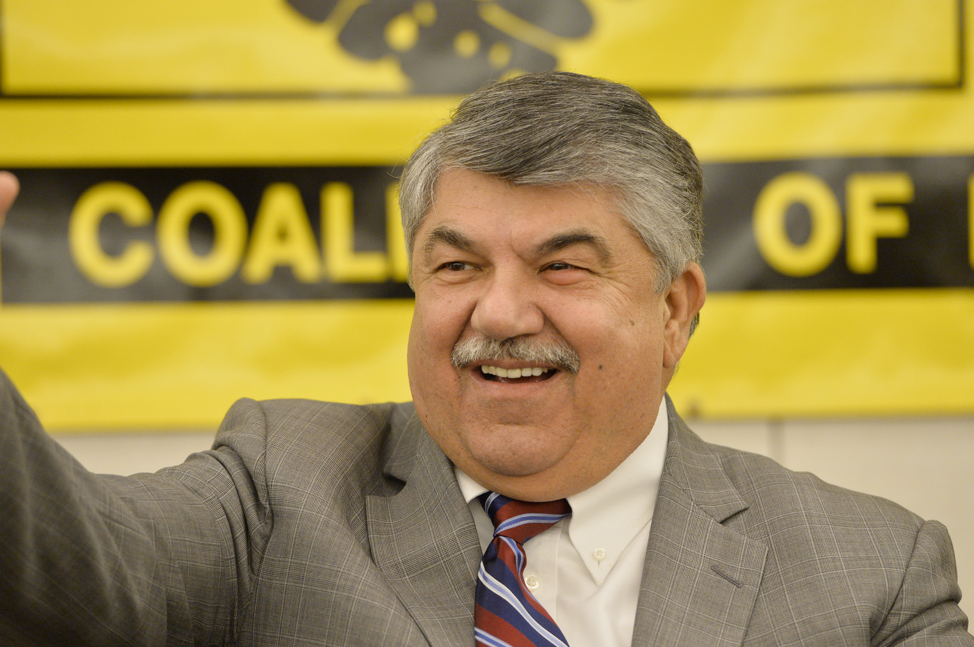In Memory: Richard Trumka, 1949-2021
By Michael Honey, UW Tacoma, Harry Bridges Chair Emeritus
Labor Day is always a time to thank the people that brought us the benefits of unionization and labor activism. This year, I thought a lot about Richard Trumka, AFL-CIO President who died on August 5 of a heart attack while camping with his family. They must have been devastated. For all of us, it was a set-back, even though he had decided to retire at the end of his term next year. The federation’s Secretary-Treasurer Liz Shuler has now become the first woman president for the AFL-CIO. There is no doubt that she will carry on some of the special things Trumka brought to the labor movement.
These included his support for immigrant rights and a path to citizenship for undocumented workers; strong support for civil rights for all, and opposition to racism in all its forms (notably, calling out racist opposition to the nomination of Barack Obama as President among white workers); support for Biden-era labor law reform and rebuilding the economy in favor of working people; and always, a militant demand to organize, organize, organize. “Without the vote and without the right to organize, there is no democracy,” he told the Texas AFL-CIO last summer, on July 27, 2021.
The ILWU's Dispatcher in August recalled Trumka's solidarity with longshore workers, in which he lent his leverage by participating in six weeks of bargaining with the Pacific Maritime Association over its 2002 lockout of ILWU coastal longshore workers. ILWU President Willie Adams commented, "he was a labor warrior with an unwavering commitment to uplifting all workers, improving workplace safety, and fighting to ensure that workers have a voice on the job."
The son of a Pennsylvania miner and a miner himself as he earned a law degree, Trumka first came to our attention as the President of the United Mine Workers Union during his bold leadership of the Pittston, West Virginia, miner’s strike in 1989-90. It was a signal victory based on militance, civil disobedience, with women in the lead, and wide outreach to demand worker rights. During the height of the anti-union crusade of companies and Republican politicians of the Reagan era, Trumka helped the labor movement to fight back with militance and unity.
I remember him on a personal level, as someone who welcomed me into the AFL-CIO in D.C. to give talks on my books and film about the struggle for union rights and economic justice by Martin Luther King and the Black freedom struggle. As labor historian Nelson Lichtenstein commented to me, Trumka helped to “knock down the Berlin Wall between the U.S. multicultural left and labor.” He and Shuler spoke to our Labor and Working-Class History Association national conference last April, and they left us with a sense of hope and possibility.
Working as part of AFL-CIO leadership from 1995 onward (he became president in 2008), Trumka saw unions suffer defeat after defeat in the face of the extreme right and the global capitalist juggernaut, but he never gave up on the struggle for a better world. He protested police killings and systemic racism against Black people and racial, ethnic, and gender minorities. He stood for equal rights and solidarity.
In his last speech on the night before his death, he told striking miners at the Warrior Met Coal Company in Brookwood, Alabama, “we will not sacrifice our dignity for their profits.” Speaking of the larger struggle against the anti-union forces, he concluded, “they won’t win. We won’t give in, and we won’t give up… Solidarity Forever!”
